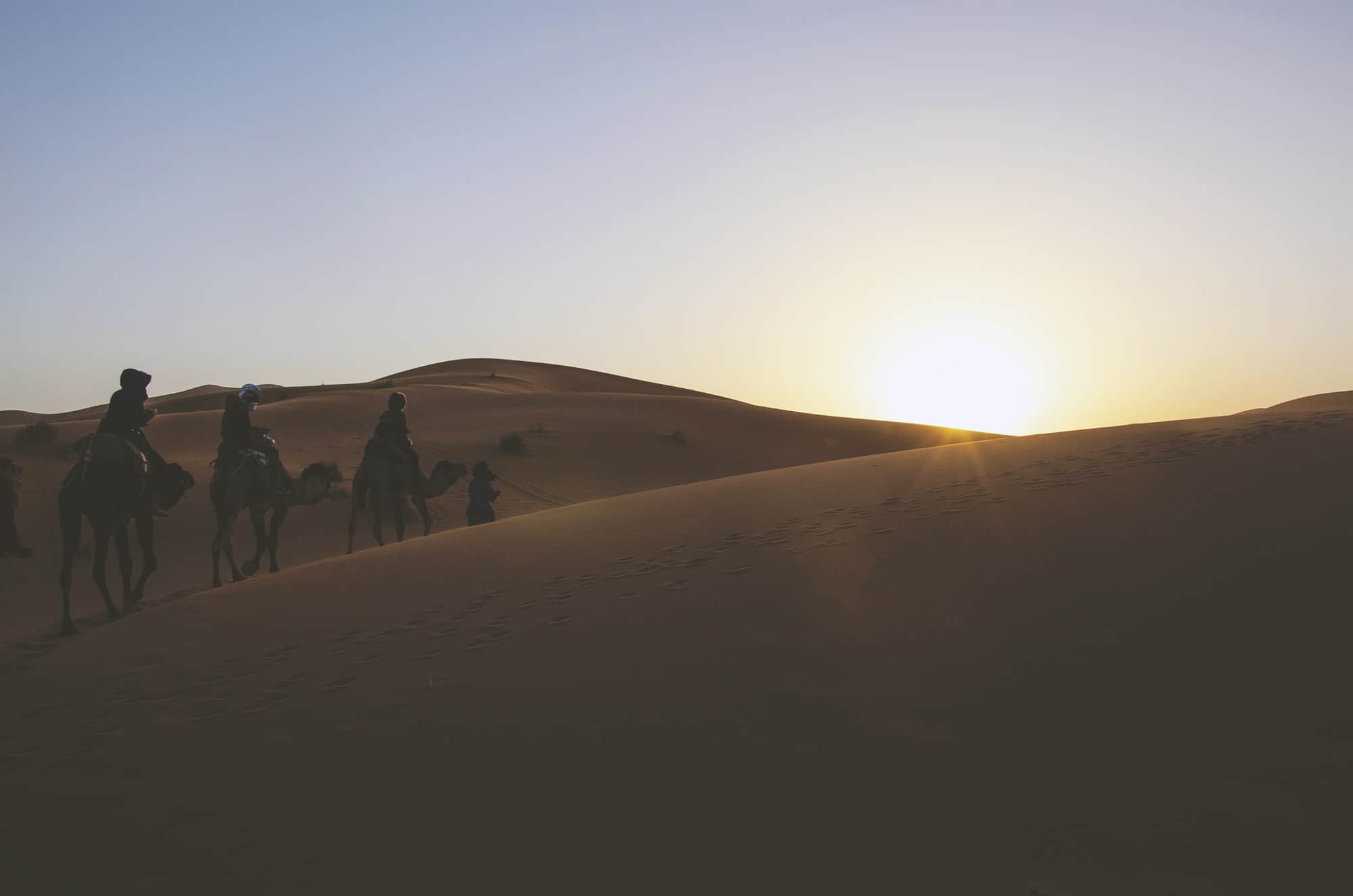Talk about journeys. A few years ago I returned from a long voyage – actually a series of journeys – that spanned over 20,000 miles (32,000km). I flew from New York to Sydney Australia. But it’s not as simple as that. First, my flight was cancelled, and instead I had to rush to the airport to barely make a flight from New York to Los Angeles (6 hours), with a connecting leg to Auckland, New Zealand (14 hours), and finally from there (3½ hours) arriving Friday afternoon in Sydney, with a few more hours thrown in waiting between flights.
Between the trips to the airports, running from one gate to the next, connecting one flight to another, between car transports to and from the airports, with over 20 speaking engagements, meetings and interviews, running to and from places and sleeping locations, from breakfasts, lunches and dinners, walking on Shabbos for over two hours – all in a whizzing 5 days, across the international date line twice, with a 14 hour time difference – it felt like traveling 42 journeys…
Yet, my journeys did not take 40 years and they were hardly in a “great, terrifying desert, where there were snakes, vipers, scorpions and thirst, with no water.” True, airplane food ain’t exactly lip smacking gourmet and the cramped space is hardly amusing, but it’s definitely far better than a great and terrifying wilderness.
[In the wilderness the Jews complained that they were “getting disgusted with this unwholesome food (the Manna from heaven).” It would however be inappropriate to compare it to the complaints about the food served in the airline heavens – a far cry from the “heavenly bread” that nourished the Jews in the wilderness, an unprecedented blessing originating in the highest cosmic levels].
In fact, the “difficulties” of my journey to Sydney are laughable compared to the truly grueling journeys that many have gone through in the last few decades – severe and punishing journeys, unprecedented in history, through the hells of Nazi Europe and Communist Russia. The last generations have endured upheavals and journeys that literally amputated entire communities and transplanted them, shattered and forever changed, in new countries across the globe. Indeed, Australia has the largest per capita population of Holocaust survivors, many of which escaped to the farthest place from Europe that they could reach…
How can I even include in the same breath my journeys to Sydney, which by contrast, had none of these challenges?
Quite the contrary, my trip to Sydney was deeply gratifying – completely overriding the arduous journeys. From Dover Heights to Double Bay; from a gourmet dinner with Rabbi Levi and Chani Wolf of the magnificent Central Synagogue to an intense conversation with the Head Chabad Rabbi Pinchas Feldman (who was sent by the Lubavitcher Rebbe to Sydney in 1968); from the huge crowd at the formal Gimmel Tammuz event for the greater Sydney community to the intimate farbrengens throughout; from meeting some key political and financial leaders to a stimulating evening at the home my good friend Kevin Bermeister; from a stirring melave malkah with the local Chabad Shluchim to an emotional evening with the women of the community – I was deeply moved by the dedication, the refinement and the beauty of these exceptional people.
When you think about it, it is quite amazing that in this distant land – down under and upside down – Jewish life thrives. Young Chabad men and women are totally devoted to inspire and illuminate the lives of all those around them. Their pure faith and innocent dedication is life affirming. They have cultivated important connections with government and business leaders, and have the ability to generate true social change and higher the spiritual consciousness of Sydney – which can have a ripple effect across the world.
Every community, and Sydney is no exception, has its challenges. Yet, I felt that the goodness and commitment of the young couples, investing all their energy in making their world a better place, will prevail and overcome all difficulties; their dedication to spreading light will dispel darkness. Their pursuit of greatness has the power to transcend pettiness.
I may have embarked on 42 journeys half around the earth and back, but I came away energized, rejuvenated – with a deep sense of renewed hope, motivated to intensify my own work to help provide tools and resources to these community leaders and laypeople. 42 journeys – with a sense that we are on our way to the Promised Land.
The 12th Century Talmud scholar, the Raavad, writes that in the final Redemption, the people will not immediately enter the Promised Land, but G-d will “bring them through the wilderness of the nations” (Ezekiel 20:35), the same way that after the Egyptian redemption the people were led through 42 journeys in the wilderness (Adioth 2:9. See also Bechayei Massei).
As I returned from my short trip to Australia I could report that we indeed are on a path to the Promised Land. And just as the Jewish people traveled 42 journeys through the wilderness on their way from Egypt to Israel, we too go through these 42 journeys in our own lives, as the Baal Shem Tov explains.
The Tzemach Tzedek writes that we go through the 42 journeys every day. So I guess that with some analysis I can figure out how I traveled these journeys through my Sydney trip. But meanwhile, let us return to the series that outlines these psycho-spiritual 42 journeys – which was skipped last week due to my laborious trek.
Here is the fourth installment of this series. Please click here to read the first three installments covering journeys 1-20.
Journey 21: They left Mount Shefer and camped in Charadah
Charadah – trembling – was so called due to the terror caused by the plague (Numbers 17:12. Targum Yonasan). Just as we experience beauty in our lives (Mount Shefer, Tiferet), we also, at times, sadly experience terror. This is the journey of fear in our lives; when “severities” (gevurah and din) are dominant (see Bechayei). Living in a perilous world, whose “roads are all prone to danger,” we all will endure experiences that cause us to shudder. The critical thing to always remember, even in the most frightening and anxious moments, is that fear is also part of the journey toward the Promised Land. When harnessed we can find solace (“camp”) in our shudders, as they sharpen our alert, focus our vigilance and teach us how to avoid or conquer the agents of fear. By not allowing our fears to consume us, we can learn to see them through, transform them to awe of the Divine and come out more powerful (see Kedushas Levi). That which does not destroy us makes us stronger.
Journey 22: They left Charadah and camped in Mak’heloth
Mak’heloth is a place of assembly (Targum Yonasan), possibly the place where the miracle of Aaron’s rod occurred in response to Korach’s challenge. This reflects the community building journey in our lives, when we build – or join – a community; when we assemble a group toward a particular cause or effort. Mak’heloth is a state of unity – when we feel connected with other and with ourselves, and together we serve a higher purpose (as in the psalm (68:27) b’Mak’heloth – in full assemblies – they praised G-d). The ultimate transformation of fear (Charadah) is when it leads us to gather, appreciate and sing praise for our Divine blessings (see Baal Haturim).
Journey 23: They left Mak’heloth and camped in Tachath
Yet, the cycles of life are such that we move from high to low. Tachath means “below,” referring to a lowly state, the lowlands of Mak’heloth (Targum Yonasan). Tachath are the low-points and downers in life. Some of these low-points follow success. This downward journey – which comes just after the mid-way point of the 42 journeys – may also refer to the middle-age blues. Another application of Tachath is the depths we fall to when we “leave Mak’heloth,” i.e. forsake and abandon unity (Chasam Sofer). Yet, we have the power to transform Tachath into a place of peace, when we each dwell “beneath (tachath) our vine and fig tree” (see Toldos Yaakov Yosef).
Journey 24: They left Tachath and camped in Terach
Terach is the name of Abraham’s father, which comes from the word “wild goat” or “old fool.” Terach is also related to the word boiling (rotach), as in irate; with Terach’s birth G-d became irate over the idol worshippers (Midrash Aggada Genesis). Another meaning of the word Terach is wait or delay (Rokeach). Terach refers to the stage in life when we move into middle-age and become fathers of our children. Will we yield children like Abraham? Will we be like “wild goats” and “old fools” worshipping one idol or another, or will we be wise and give off a spiritual aroma (Terach from the word re’ach, the scent of Torah and Mitzvot – Yalkut Midrashei Teiman)?
Journey 25: They left Terach and camped in Mithkah
From Terach we camp in Mithkah, a place of sweetness, with good fresh water (Targum Yonasan), the stage in life when we experience the sweet nachas from seeing the fruits of our labor – as in grand-parenting or other life achievements. This sweetness is even more profound because it follows and transforms the bitterness of life (see journey 5).
Journey 26: They left Mithkah and camped in Chashmonah
Chashmonah means ambassador, referring to the journey in life when we serve as an envoy or emissary representing a particular cause. It can also include a time when we assume a mature position of leadership and influence – usually later in our lives.
Journey 27: They left Chashmonah and camped in Moseroth
Moseroth (from the word mussar) means chastisement. This place is later called Aaron’s burial place (Deuteronomy 10:6), because they grieved from him here (Rashi ibid 7. See Ramban ibid 8. Malbim Numbers 20:29). This refers to the journey and stage in life when we have the wise experience to counsel others and offer constructive criticism and rebuke (“at age fifty for counsel” – Avot 5:24).
To be continued.







